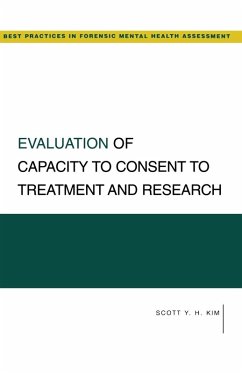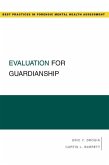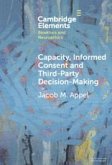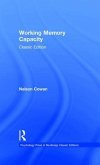Forensic mental health assessment (FMHA) has grown into a specialization informed by research and professional guidelines. This series presents up-to-date information on the most important and frequently conducted forms of FMHA. The 19 topical volumes address best approaches to practice for particular types of evaluation in the criminal, civil, and juvenile/family areas. Each volume contains a thorough discussion of the relevant legal and psychological concepts, followed by a step-by-step description of the assessment process from preparing for the evaluation to writing the report and testifying in court. Volumes include the following helpful features: Boxes that zero in on important information for use in evaluations Tips for best practice and cautions against common pitfalls Highlighting of relevant case law and statutes Separate list of assessment tools for easy reference Helpful glossary of key terms for the particular topic In making recommendations for best practice, authors consider empirical support, legal relevance, and consistency with ethical and professional standards. These volumes offer invaluable guidance for anyone involved in conducting or using forensic evaluations. Patients provide valid informed consent to a treatment or a diagnostic procedure if they have sufficient capacity, have been given appropriate information, and give consent freely without coercion or undue influence. When a patient's capacity for treatment consent is in doubt, a clinician must determine whether the patient indeed has the capacity. This book provides clear, step-by-step information on the evaluation procedure for capacity to consent to both treatment and research. Features Part of the successful Best Practices in Forensic Mental Health Assessment series Provides step-by-step information on evaluating competence to consent to treatment Contains useful features like key terms, best practice sidebars, and checklists
Hinweis: Dieser Artikel kann nur an eine deutsche Lieferadresse ausgeliefert werden.
Hinweis: Dieser Artikel kann nur an eine deutsche Lieferadresse ausgeliefert werden.








